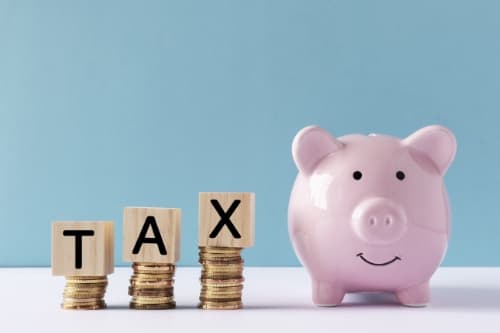Get Ahead with Your Tax Return
Tax season is here which means many people are looking forward to tax refunds. Receiving a lump sum of money is exciting for anyone, and you may already be thinking of all the ways to spend it. While you may have a lot of fun ways to spend your tax refund in mind, you may want to reconsider and take a step back to look at the big picture. Here’s a few ways to consider spending your tax return that may help you get ahead and make the most of your return.
Pay Down Debt
We get it, paying off debt likely isn’t the most exciting way to spend your tax refund, however, around 70% of all Americans report feeling stressed about their personal finances1, and paying off debt could provide a huge relief. With debt hanging over your head it can be incredibly difficult to get ahead. This can especially be the case if you have high payments, accounts in collections, or accounts in default. Not to mention it can be a big stressor for many people. Your tax refund could be an opportunity for you to get rid of some of that debt and get it off your shoulders. Once doing so you may be able to better focus your money on things you’d really like to spend it on, like those fun things you originally had in mind for your tax refund. Additionally, tax time can be the perfect time to pay off debt as many companies will offer promotions or settlements during this time to encourage repayment. Just be careful when accepting any settlements as it could affect your credit and you may later be required to pay taxes on the amount that was waived.
Put It in Savings
Financial experts recommend individuals have anywhere between three to six months’ worth of living expenses2 in savings. This is to ensure that if anything happens, such as a job loss, you can better guarantee you have money to cover all your bills and other living expenses while you get back on track. If needed, the funds would cover things such as rent, utilities, internet, phone, groceries, insurance, and more. Putting money away in savings is often easier said than done though, especially if you’re working with a tight budget or living paycheck to paycheck as many Americans do. However, your tax refund could allow you to put some of the money you need into your savings account to save for a rainy day. If you need help figuring out how much money you should have in your savings account, our Budget Planning Tool can help. First, complete the form to figure out your budget, which will help you know how much you should be spending in total for the month. Then, multiply the total by the number of months you plan to keep on hand in savings. For example, if your total monthly budget is $2,000 and you want three months of living expenses in savings, you would need to save a total of $6,000. Though your tax refund may not be enough to cover the total amount you need, it will at least help you get closer.
Invest in Yourself
After getting caught up on bills and savings, another great way to use your tax refund is to invest in yourself. Many of us have bigger financial goals, but they can be hard to reach at times, sometimes even feeling almost impossible. Your tax refund can help you to realize some of those goals. If you’ve been wanting to move, your tax refund could help you pay for moving expenses or the deposit on a new place. Or perhaps you need a new car and you could use your tax refund to pay the down payment on a new or used vehicle. Whatever the case may be, investing in yourself can oftentimes be an investment in your future.
Of course, if you ever find yourself in need of funds to meet expenses Cash Central has your back. You can request a Cash Central loan* anytime, 24/7 and have funds deposited directly into your checking account as soon as the very next business day.**
* In California, deferred deposit loans are provided in accordance with the Department of Financial Protection and Innovation pursuant to California Deferred Deposit Transaction Law, Cal. Fin. Code §23000 et seq.
**Exact funding time depends on the terms of your financial institution.
Sources:
1Dhue, Stephanie, Epperson, Sharon. (2023, Apr 11). Retrieved from: https://www.cnbc.com/2023/04/11/70percent-of-americans-feel-financially-stressed-new-cnbc-survey-finds.html
2Goldberg, Matthew. (2023, Mar 3). Retrieved from: https://www.bankrate.com/retirement/how-much-do-you-need-in-savings-retirement-emergency-fund/

 You must have JavaScript enabled to use this site.
You must have JavaScript enabled to use this site.
 For a better user experience consider upgrading your browser.
For a better user experience consider upgrading your browser.

